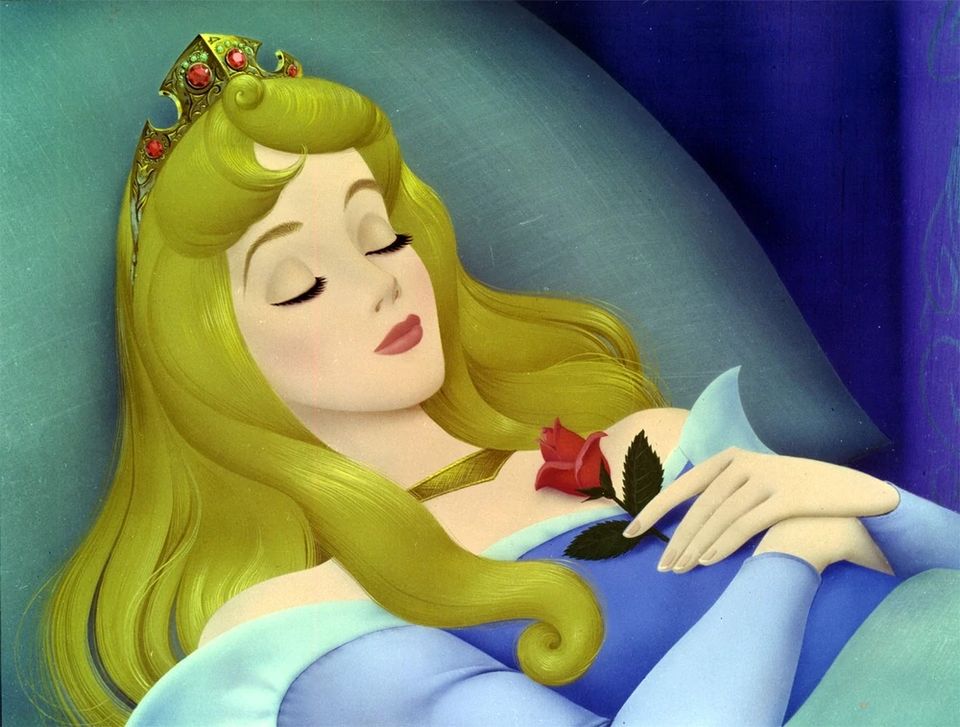Hustle Culture Sucks: That’s Why I Sleep Until Noon
Is the American Dream the American Scam?

It’s noon when my alarm goes off. I intentionally have a soothing song called “Good Morning” that’s much more gentle than the iPhone default. I hit snooze and listen to a short guided meditation on Calm, a wellness app, by a woman named Tamara. By the time I get out of bed, I’m rested, zen, and ready to start my day. My day doesn’t follow a set schedule. I’ll do work for an hour or two—with The Office in the background usually— go to the gym, make lunch. Check social media intermittently. At some point, I’ll walk over to the coffee shop to get a decaf iced almond milk latte. Then a little reading and an hour or two of writing my book.
My day flows. It’s calm for the most part. There’s no fire drills. Even if something deviates from plan, I rarely have a reason to get stressed out. I control my time and create pockets of deep work; what author Cal Newport describes as uninterrupted moments of productivity that produces better results in less time.
This was not the American Dream I was sold on. In college, pulling all-nighters was a badge of honor. When I worked at a talent agency, it was mandatory to stay tethered to my desk until the higher-ups left; regardless of whether there was actual work or simply creating the optical illusion that I was essential. Believe me, there is nothing sadder than eating a $12 salad in a cubicle with a headset attached to your ear. When I worked at a digital startup, I was so happy to get my first Blackberry. That is until I realized it was analogous to a doctor’s pager that kept me “on call” at all hours and holidays. Who can forget that client that needed me to monitor their Facebook on my birthday?
Last week, author Tim Kreider declared that “It’s Time to Stop Living the American Scam” and discusses the antiquated belief that success and busyness are one and the same. “Life is too short to be busy,” he writes.
It’s no surprise that the pandemic has changed the work paradigm. Almost 48 million people left their jobs. Thinkpieces about young workers refuting the old rules have become a lucrative beat for writers, with splashy research like “Almost half of Gen Z and millennials would rather be unemployed than unhappy in a job.” According to McKinsey, 87% of people surveyed want a flexible work environment. Companies are grappling with the divide in various ways; some are investing in hot desks and fancy office spaces while others are doubling down with ultimatums and terminations.
The real issue is that work is based on hustle culture.
Before we can change the workplace, we need to eradicate its most core belief. Hustle culture breeds the idea that you need to “be on” all the time. Working 24/7. It glorifies busyness. In America, being perpetually stressed and never taking a day off means that you’re committed, successful, a team player. We applaud successful leaders like former Twitter CEO Jack Dorsey, Elon Music, and celebrities like Sean “Diddy” Combs on how much they work and how little they sleep.
If I was a billionaire, I would sleep more not less. In Tahiti, ideally.
According to Headversity, hustle culture is rooted in behavioral psychology: “Hustle culture uses a specific reinforcement schedule from operantconditioning. By rewarding individuals after a random number of times, hustle culture uses a variable ratio schedule, the strongest of all reinforcement schedules (the same used in lottery games). Hustlers become dependent on these unpredictable rewards of success, thus resulting in a rush that pushes you to hang on until the next win. Over and over and over… “
In other words, you get addicted to the high— and so you keep playing the game. But it’s a game that you never win. “It creates the assumption that the only value we have as human beings is our productivity capability — our ability to work, rather than our humanity,” explains Aidan Harper, creator of Europe’s 4 Day Week campaign.
And the expectation that an entry or mid-level person should invest in as much time and sweat equity as the c-suite makes no sense.I’m not devoting my existence to building someone else’s dreams.
Hustle culture exists even with remote and hybrid work. According to a study from Nature Human Behavior, remote workers spent 10% longer logged in each week. For someone working a standard 40-hour week, that adds up to an additional (unpaid) week by the end of the year. A survey done by the Society for Human Resource Management at the end of 2020, found that 75% of remote respondents said they were working on weekends and 45% were working more than before.
For remote workers, the office is constantly open. The idea of shutting down for the day and delineating boundaries is impossible when the laptop is right thereon the kitchen table. With email and Slack on every phone, disconnecting is impossible. When I started freelancing, I had to contend with this idea. I needed to set—and keep—healthy boundaries because nobody else was going to do it for me.
Social media has added to the pressures of always grinding. And it isn’t just toxic”hustle bros”. I’ve spoken to several friends who feel legitimately guilt posting something online that their coworkers might see and misconstrue as slacking off. As The Atlantic wrote, “Remote work might feel great, but unless you go to extreme lengths to signal your devotion to your company, it can irritate your boss and hurt your career.” That picture of you working remotely on a beach? Could be viewed as a vacation. Your coffee break on Instagram Stories? Delete it.
As Kreider says: “”Of course, everyone is still busy — worse than busy, exhausted, too wiped at the end of the day to do more than stress-eat, binge-watch and doomscroll — but no one’s calling it anything other than what it is anymore: an endless, frantic hamster wheel for survival.”
This moment in history offers a unique opportunity to wake up from the American Dream, which has become a nightmare. Let’s honestly think about work in a way that’s meaningful and sustainable. For far too long, we’ve been on autopilot with nothing more than a two-week vacation to look forward to (and most people are bad at taking their time off). I’m not telling you to quit your job or sleep until noon. It’s a privilege to leave a job. But for those who have the luxury to be able to take a step back and reflect, now is the time.
Don’t rise and grind when you really want to hit snooze.


